Aaron Copland
1900 - 1990
Aaron Copland was an American composer, composition teacher, writer, and conductor.
Aaron Copland Says:
📖 “So long as the human spirit thrives on this planet, music in some living form will accompany and sustain it.”
📖 "Music that is born complex is not inherently better or worse than music that is born simple."
📖 "My own belief is that all music has an expressive power, some more and some less, but that all music has a certain meaning behind the notes and that the meaning behind the notes constitutes, after all, what the piece is saying, what the piece is about. The whole problem can be stated quite simply by asking, 'Is there a meaning to music?' My answer to that would be, 'Yes.' And 'Can you state in so many words what the meaning is?' My answer to that would be, 'No.'"
In What to Listen for in Music (1939)
📖 "The greatest moments of the human spirit may be deduced from the greatest moments in music."
In Music as an Aspect of the Human Spirit, radio broadcast (1954)
📖 "I have often observed that the mark of a real music lover was an imperious desire to become familiar with every manifestation of the art, ancient and modern."
In What to Listen for in Music (1939)
📖 "No composer believes that there are any short cuts to the better appreciation of music. The only thing that one can do for the listener is to point out what actually exists in the music itself and reasonably to explain the wherefore and the why of the matter. The listener must do the rest."
In What to Listen for in Music (1939)
📖 "How close should the intelligent music lover wish to come to pinning a definite meaning to any particular work? No closer than a general concept, I should say. Music expresses, at different moments, serenity or exuberance, regret or triumph, fury or delight. It expresses each of these moods, and many others, in a numberless variety of subtle shadings and differences. It may even express a state of meaning for which there exists no adequate word in any language. In that case, musicians often like to say that it has only a purely musical meaning. They sometimes go farther and say that all music has only a purely musical meaning. What they really mean is that no appropriate word can be found to express the music's meaning and that, even if it could, they do not feel the need of finding it."
In What to Listen for in Music (1939)
📖 "Professional musicians …. are, if anything, too conscious of the mere notes themselves. They often fall into the error of becoming so engrossed with their arpeggios and staccatos that they forget the deeper aspects of the music they are performing."
In What to Listen for in Music (1939)
📖 "The intelligent listener must be prepared to increase his awareness of the musical material and what happens to it. He must hear the melodies, the rhythms, the harmonies, the tone colours in a more conscious fashion. But above all he must, in order to follow the like of the composer's thought, know something of the principles of musical form."
In What to Listen for in Music (1939)
Quotes by Aaron Copland
🔔 Reload the page a few times if you see orange widgets instead of books and music.
Piano Music and Books
Listen to Some Music by Aaron Copland
Copland plays Copland
The Cat & The Mouse
Copland Plays Copland - Piano Concerto (recorded February 8, 1964)
Aaron Copland, piano
New York Philharmonic
Leonard Bernstein, conductor
Copland plays Copland
Four Piano Blues
Copland plays Copland
Violin Sonata
Isaac Stern, violin
Aaron Copland, piano
Aaron Copland - Documentaries, Interviews etc.
A Portrait of Aaron Copland and American Musical History (1975)
John Callaway Interviews Aaron Copland (1981)
Keeping Score - Aaron Copland and the American Sound (full documentary and concert)
Day at Night: Aaron Copland, composer
Aaron Copland interviewed by Dr. John Downey, University of Wisconsin-Milwaukee (1970)
Piano Music by Aaron Copland
Humoristic Scherzo: The Cat and the Mouse, 1920
3 Moods, 1920–21: Embittered, Wistful, Jazzy; Passacaglia, 1921–2
Petit Portrait, 1921
Piano Sonata, 1921
Blues no.1 (Sentimental Melody: Slow Dance), 1926–7
Blues no.2 (Piano Blues no.4), 1926
Piano Blues no.2, 1926, rev. 1934
Piano Variations, 1930
Sunday Afternoon Music, 1935
The Young Pioneers, 1935
Piano Sonata, 1939–41
Danzón cubano, 2 pianos, 1942, orchd 1944
Midday Thoughts, 1944, rev. 1982
Midsummer Nocturne, 1947, rev. 1977
Piano Blues no.1, 1947 [arr. chbr orch, 1978–9]
Piano Blues no.3, 1948
Piano Fantasy, 1952–7
Down a Country Lane, 1962
Danza de Jalisco, 2 pianos, 1963 [arr. of orch work]
In Evening Air, 1966
Night Thoughts (Homage to Ives), 1972
Proclamation, 1973, rev. 1982
Homepage Piano Lessons London | Tuition Elements | Piano Composers A-Z
 Piano Lessons in London | Natalia Loresch | Tel. 07454766539
Piano Lessons in London | Natalia Loresch | Tel. 07454766539